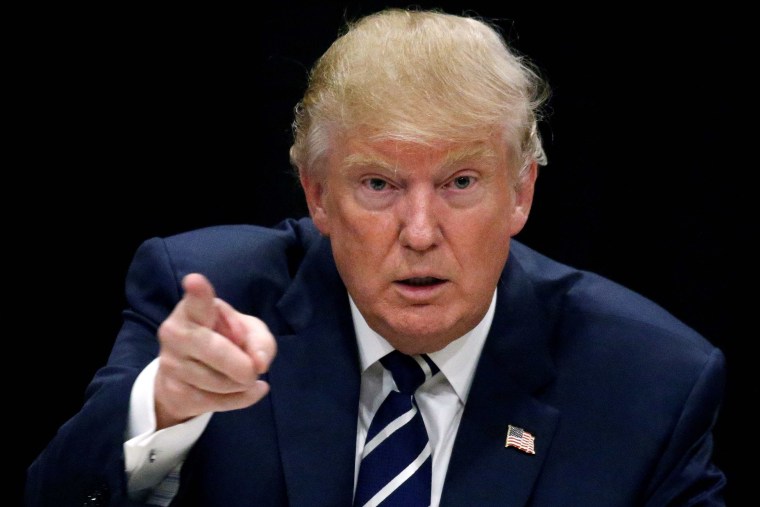The Office of Government Ethics on Wednesday cheered on Donald Trump’s announcement that he’d be leaving his business "in total" to focus on the presidency with the energy of excited fan — while ignoring the fact that Trump’s announcement answered very few questions about his own potential conflict of interest problems.
The office started its uncharacteristic tweet storm with "We can't repeat enough how good this total divestiture will be."
They then went on to add that the move was "Brilliant! Divestiture is good for you, very good for America!"
In total, the OGE's Twitter sent nine tweets that applauded the decision, sentiments at times started with or punctuated by a "Bravo!"
The office finished the tweet flurry by telling Trump they were making good on a promise: "we told your counsel we'd sing your praises if you divested, we meant it."
OGE later released a statement to clarify its tweets.
"Like everyone else, we were excited this morning to read the President-elect’s twitter feed indicating that he wants to be free of conflicts of interest," OGE Spokesperson Seth Jaffe said in a statement.
"Divestiture resolves conflicts of interest in a way that transferring control does not," Jaffe added. "We don’t know the details of their plan, but we are willing and eager to help them with it."
Related: Donald Trump Tweets He'll Leave His Business to Focus on Presidency
Trump’s own tweets teased a December announcement, but don’t explain how “leaving” his “business operations” would work in practice.
Handing over operations of the company is hardly a surprising announcement — the presidency is a full time job — but most importantly, none of Trump’s tweets address ownership. That’s the key issue in actual or even perceived conflict of interest issues for the president-elect: whether or not he can personally see profit from presidential decisions. It’s why, typically, presidents’ personal investments are held in blind trusts.
Still, Trump's business entanglements are a lot more complex than past presidents’ investment portfolios, and while technically the president is not legally bound to the same federal laws that govern other government servants’ conflicts of interests, the Office of Government Ethics has recommended that President-elect Trump abide by those same laws and guidelines and divest from businesses that pose conflicts.
While Trump’s teased a “visually important” split from the company, his decision to include the children who will take over company operations in a meeting with foreign leaders and their inclusion on the presidential transition team poses a whole other slew of questions about how their involvement informally and formally in government could boost the family’s company.
Related: Trump Will Violate DC Hotel Lease By Taking Office, Say Experts
Trump’s tweets do, however, buy the campaign two weeks — the decision is slated for Dec. 15th — to sort out answers to some of the questions.
"The tweets say ‘business operations’ — that’s not ownership and it’s unrelated to benefits," said George Washington University law professor Steven Schooner, an expert in government contract law and former administration of Federal Procurement Policy for the Office of Management and Budget.
For constitutional concerns, like gifts from foreign governments directed at the president, Schooner says “the benefit is what matters, not the management.”
Asked whether Trump’s statement today could resolve substantive conflicts, Schooner told MSNBC that “the short answer is the tweetstorm changes nothing.”

